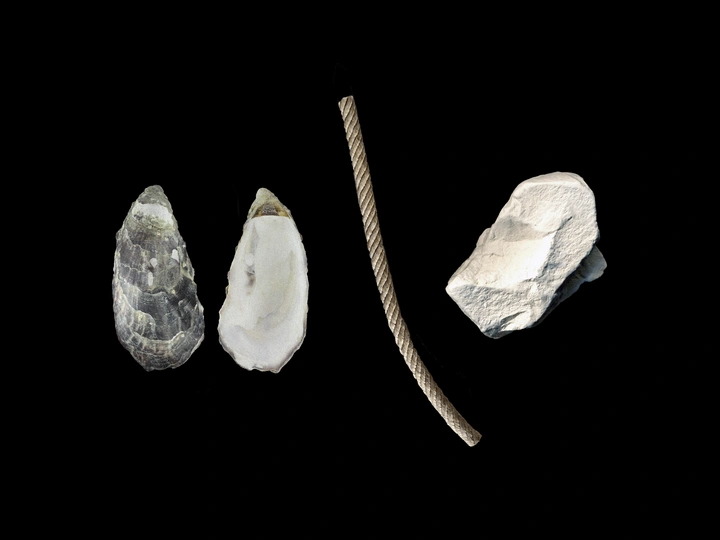Linea

Amalia Magril
Noff is a research-based design studio based in the Netherlands, founded by Daniel Garber and Amalia Magril. Through in-depth research of production systems, supply chains, and aesthetic cultures—the multi-disciplinary duo aims to foster a better understanding of the forces that shape the complex reality we live in. In their practice, they use extensive material experimentation combined with critical reflections to investigate social, ecological, historical, and political issues in order to promote more holistic modes of production and consumption. Their explorations often question perceptions of the environment, taking the form of installations, materials, and everyday objects. In 2023, the duo graduated with a joint master’s from the Geo-design program at Design Academy Eindhoven. Their design practice ranges from design education to commercial and self-initiated projects, which have been presented at notable design events, galleries, and museums, including Dutch Design Week and Paris Design Week.
“Linea” outlines a scenario in which local industries, materials, and traditional knowledge are intertwined—forming a new kind of aesthetic culture. It aims to cultivate new practices and collaborative production networks that correspond with the material and social environments in which they operate, focusing on the Charente region in western France.
Rich with fertile soils and quarries, the region has thrived through mastering crafts and skills for the production of consumer goods, making trade and industrial manufacturing an integral part of the region’s identity. However, current production models rely on continuous extractions of valuable natural resources, complex globalized supply chains, and industrial standards that obscure traditional know-how—contributing to the growing instability of global ecological and social systems.
Through material and aesthetic research, Linea identifies potential opportunities that could benefit both the environment and the local community. It reimagines the production of goods as a process of collective effort—intertwining traditional rope-making with the renowned Limoges porcelain and the oyster industry of Charente-Maritime—resulting in a collection of locally rooted objects.
The objects were made from a new porcelain composition that utilizes the large amounts of shell waste in the region to substantially reduce the amount of extracted minerals in the clay and minimize the reliance on offshore supply. The shapes are inspired by vessels found in La Chapelle-des-Pots and crafted to accommodate the integration of ropes in various ways. It pays tribute to the art of knot-making while preserving the traditional knowledge of rope-making that has almost been lost in the region.
In the context of LINA, the project functions as a framework that can be applied to other territories, establishing new connections to construct locally anchored production systems.